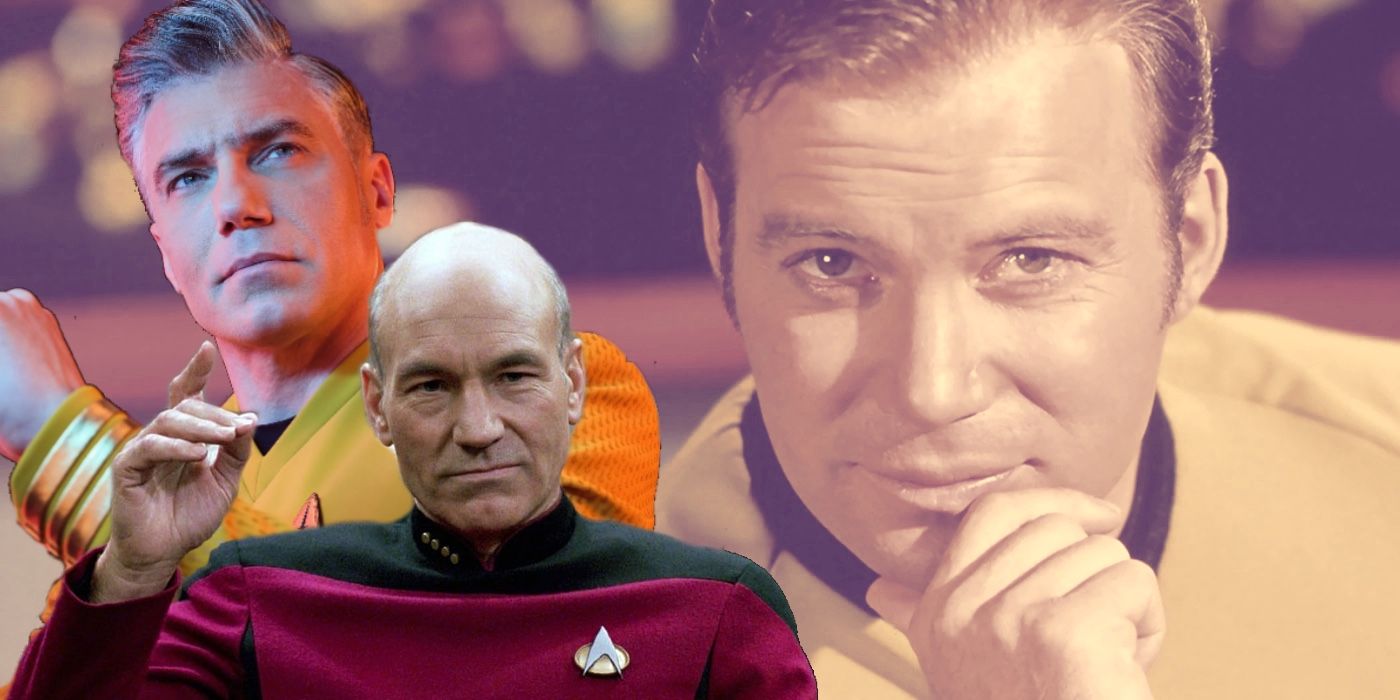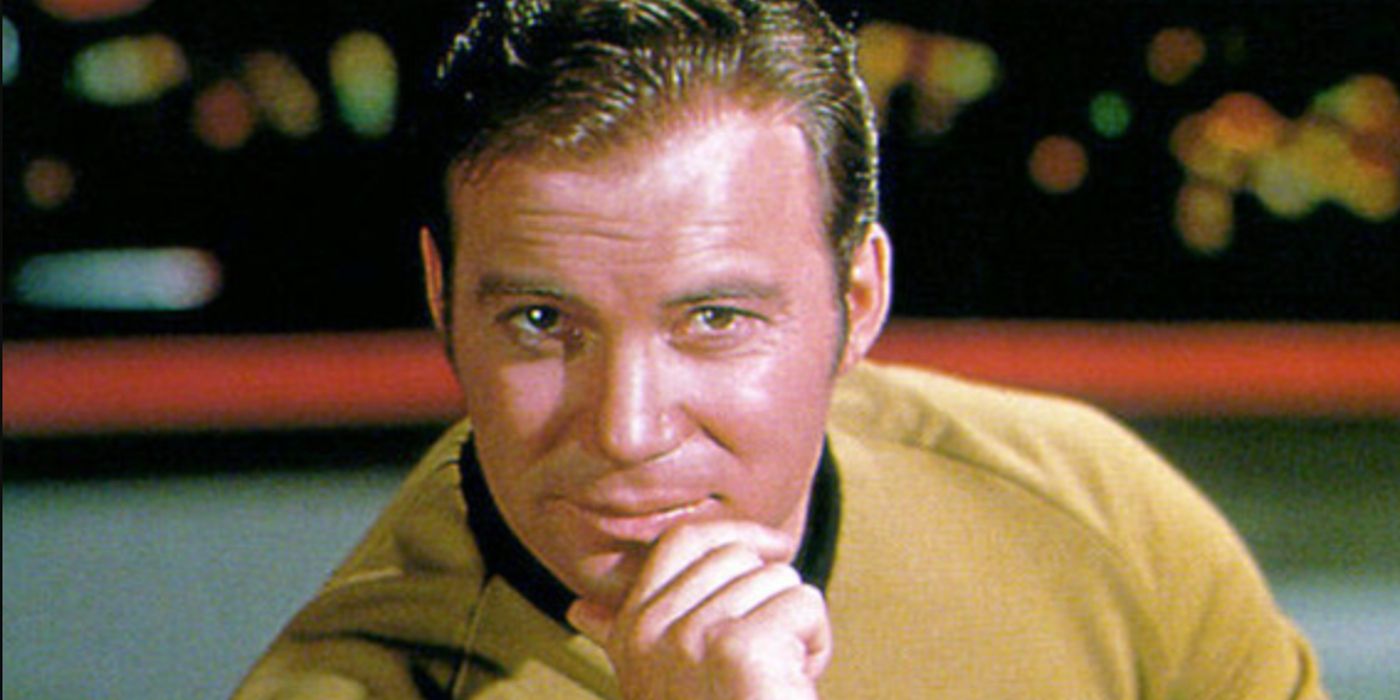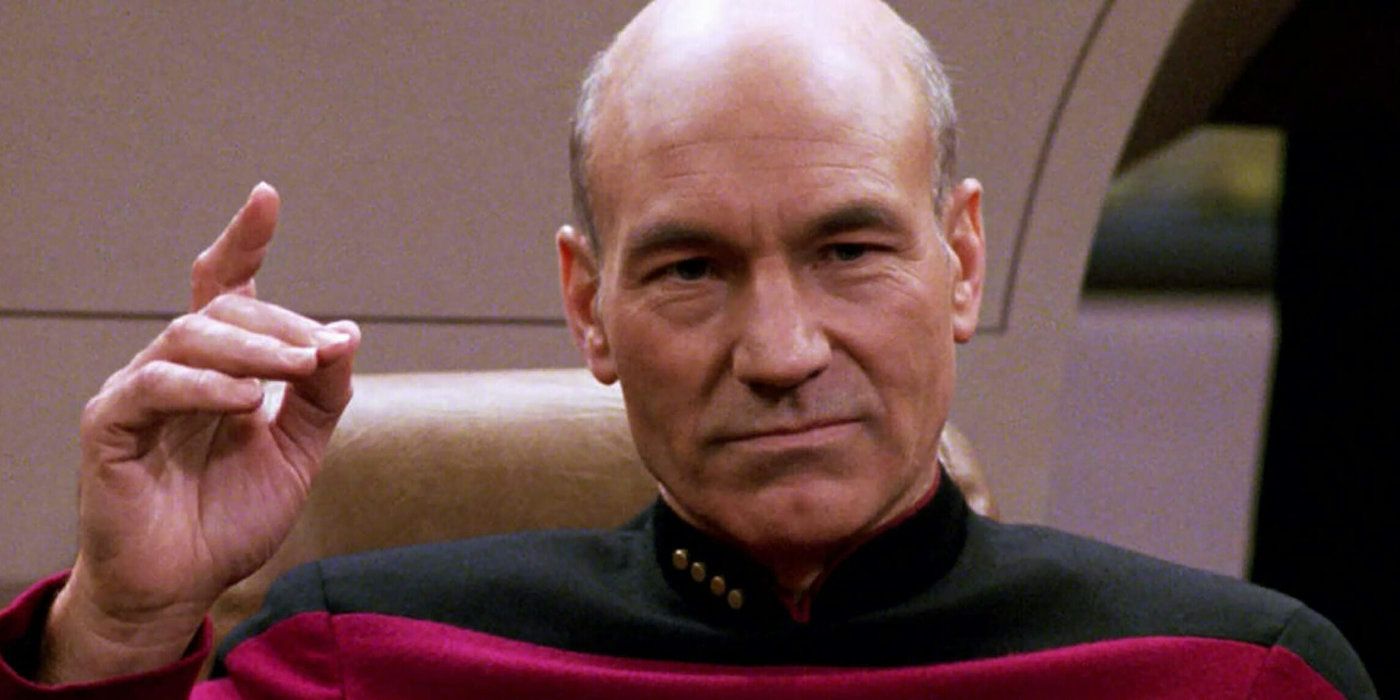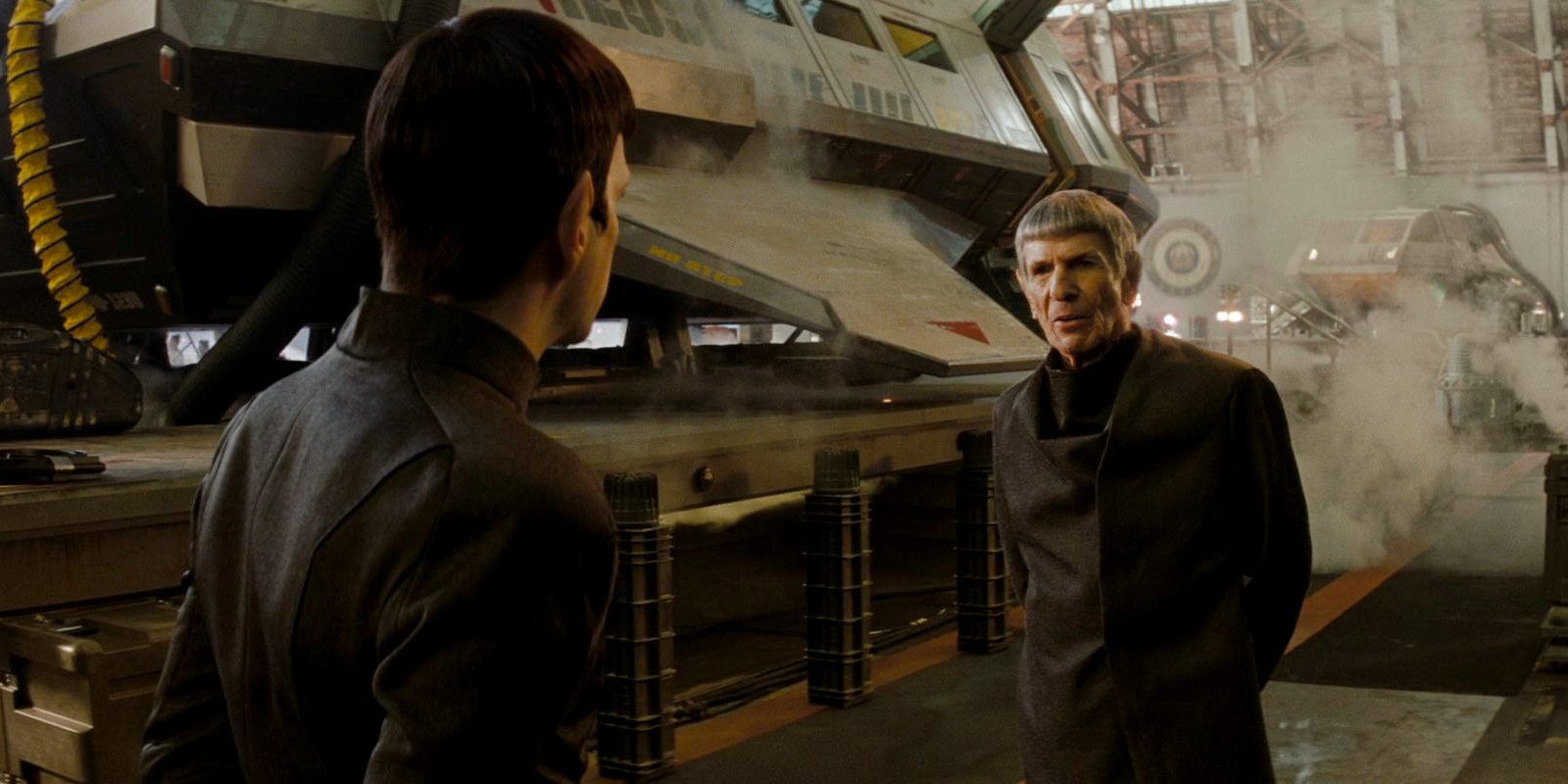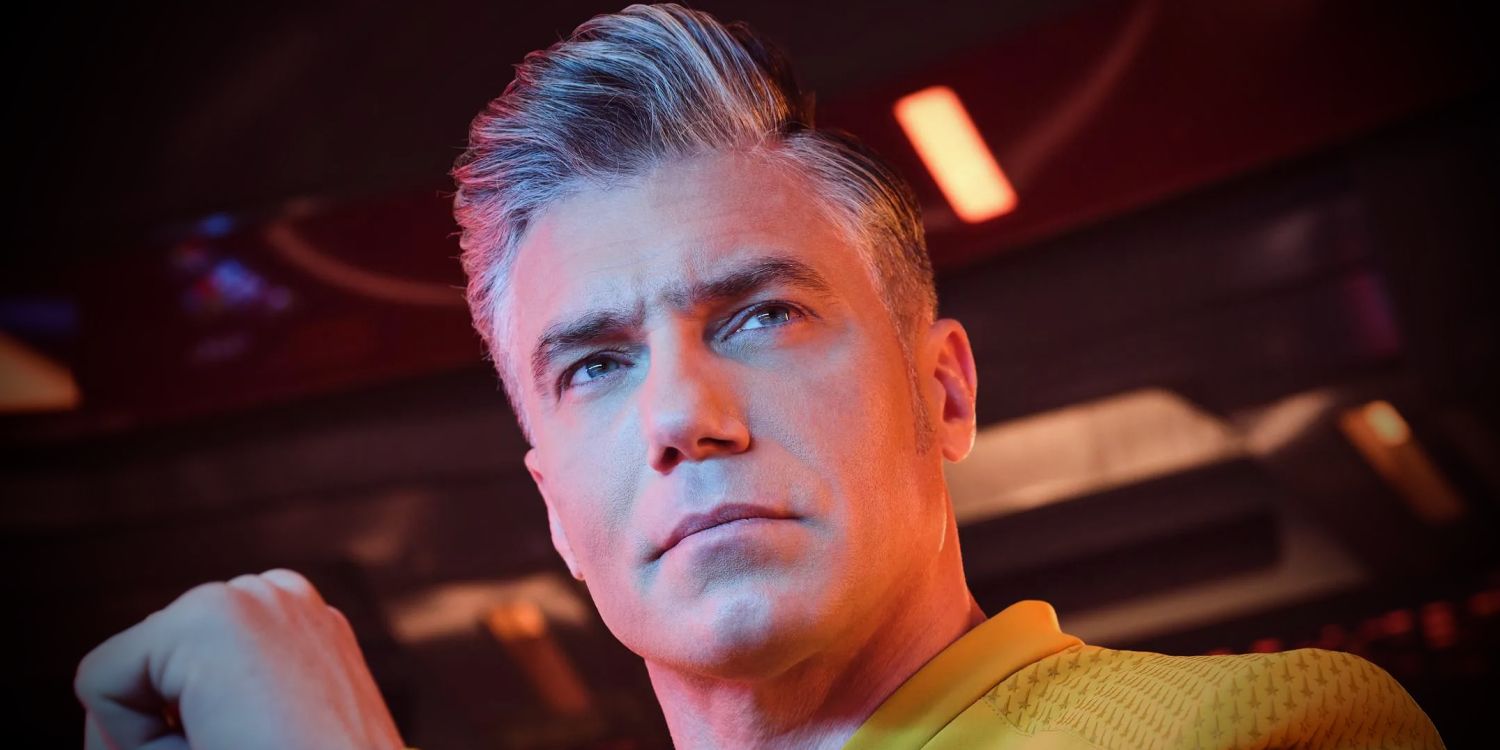Star Trek's famous "to boldly go" speech has been an integral part of the franchise since the very beginning, but it has also changed since Captain Kirk first uttered the words. Spicing up the introduction of Star Trek: The Original Series for all three seasons, Kirk's monologue set the stage for the episode to come and has been something of a thesis statement for the franchise as a whole. Despite its longevity and importance to Star Trek, the speech itself has gone through a plethora of changes that have not only updated the language but improved the message to be more inclusive to the entire galaxy.
Star Trek: The Original Series went through several drafts before it reached the air in 1966 and so too did the speech. Meant as an inspiring start to an inspiring program, the introduction gave viewers everything they needed to know without too much exposition. Though other Star Trek shows left out the opening speech, it has never been fully abandoned by the franchise and was even responsible for a host of catchphrases. Several episodes pulled their titles directly from the speech, and each new generation of Star Trek has gotten its own version. Like the philosophy of the franchise, the speech has been flexible and has grown with the times.
Captain Kirk's Star Trek: The Original Series Speech
Undoubtedly the most recognizable and quoted version of the monologue was Captain Kirk's original speech from TOS. Though Star Trek: Strange New Worlds would have its own version that technically took place before Kirk's time, TOS's speech started it all. Delivered in William Shatner's distinctive bravado, the original speech was a rousing anthem that matched the upbeat tone of the show's peppy theme song. It came during the theme song's distinctive tinkling notes and was almost musical. Star Trek: The Original Series' best episodes were made better by the opening monologue, and it summed up the experience of Star Trek for first-time viewers, no matter what episode they started with.
Besides the rousing "where no man has gone before" ending, the speech also featured several other uses of evocative language that have stuck with the franchise forever. Referring to space as "the final frontier" was one of Star Trek's first additions to the popular lexicon of sci-fi, and even informed the real world as well. Though it would be updated, the original speech wasn't lacking but was merely sharpened over time to be more accurate and less broad. The use of the words "no man" to refer to humanity as a whole wasn't necessarily intended as a gendered term in the 1960s, but the prevailing thought changed in subsequent decades.
Spock's Star Trek II: The Wrath Of Khan Speech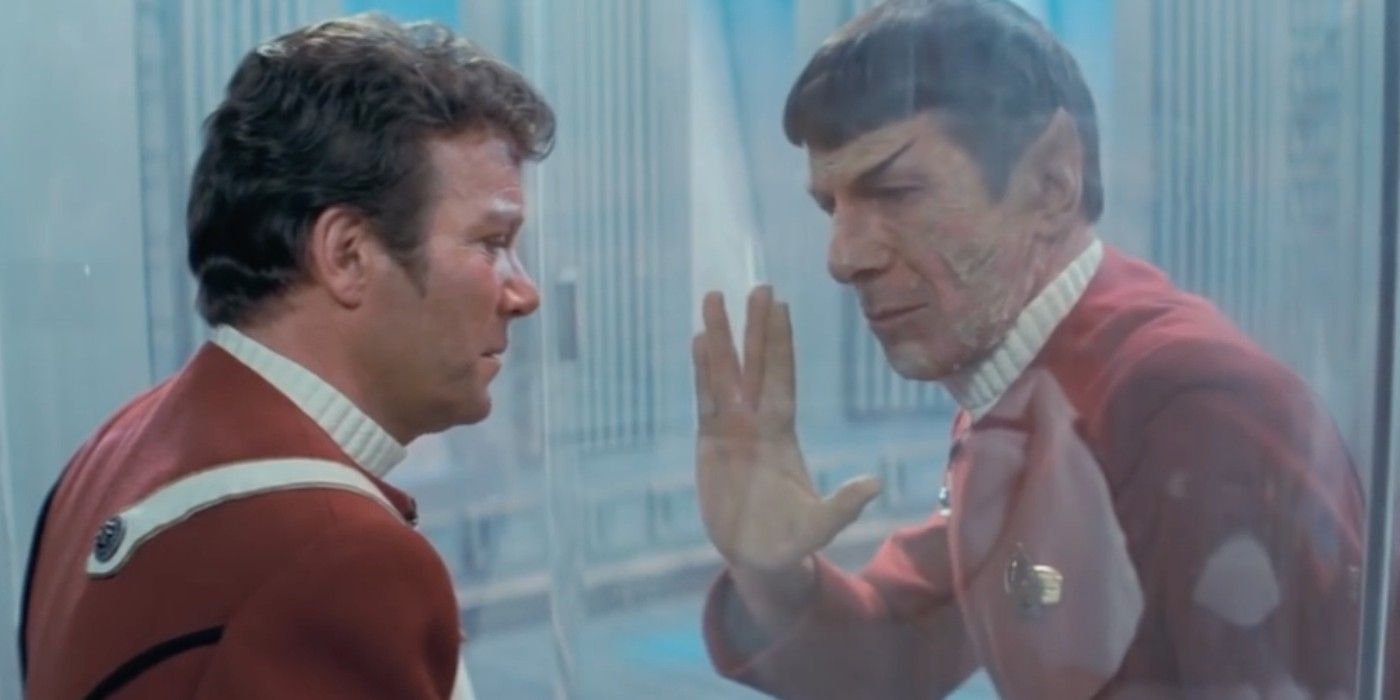
Every generation of Trek has copied from Wrath of Khan, though it has failed to match the brilliance of the first sequel. The way the movie advanced the characters into middle age showed a maturity that was new to Trek, and the changes were beneficial without detracting from what had come before. As such, the speech got a tweak of its own to reflect changing attitudes, and the duties of reciting the words went to Spock instead of Kirk, who had always said it before. Like a specter from the afterlife, Leonard Nimoy's baritone gave the speech an emotional weight and the changes reflected the events of the film.
Speaking just before the credits of the film, Spock's speech included the phrase "continuing voyages", which let the audience know that things were far from over after his death. He then said of the Enterprise, "her ongoing mission" which reflected the franchise's eventual departure from Star Trek's five-year mission format that they would abandon by Star Trek: The Next Generation. The final change came when Spock expanded the wording of the speech to include "new life forms" as opposed to just "new life", which allowed for even broader possibilities of discovery as Star Trek moved into the future of space exploration.
Captain Picard's Star Trek: The Next Generation Speech
Set almost a century after the events of TOS, The Next Generation blazed its own trail through the Final Frontier, while also preserving the past. Like his predecessor Captain Kirk, Captain Jean-Luc Picard was given the honor of making the speech, and all 178 episodes of the series featured the Enterprise captain delivering his own revised version of the monologue for a new generation. Though the changes were less drastic than those seen in Spock's monologue after his death in Star Trek II, the TNG speech reflected modern sensibilities and updated the words to make them more accurate to the actual mission of the Enterprise-D.
The all-important "Space: the final frontier" line remained intact, as it would with every other version, and the references to the "voyages of the starship Enterprise" line was reverted to its original form from TOS. However, "her" was replaced with "its" when referring to the Enterprise-D, and "five-year mission" became simply "continuing mission" since no hard end date was ever placed on the ship's time of service. Most importantly, the triumphant final line "where no man has gone before" was updated to include the gender-neutral term "no one" and that change has stuck with the speech in all subsequent iterations.
The Kelvin Universe Speeches
Star Trek's controversial Kelvin Timeline films featured an alternate universe that allowed for unique storytelling possibilities separate from the main universe, but many of the franchise's most recognizable elements persisted, including the speech. At the end of 2009's Star Trek, the Prime Universe version of Spock was once again tapped to do the honors, and he delivered a version of the speech that contained a mixture of phrases from all different iterations. Star Trek Into Darkness had Kirk deliver the exact same monologue as the 2009 version, while Star Trek Beyond's speech from Uhura was lifted directly from The Next Generation.
Spock Prime's speech featured all the updated language regarding gender, but it also still replaced "five-year mission" with "ongoing" mission, even though the Kelvin universe version of the Enterprise was still embarking on five-year stints. Reflecting what Spock said at the end of Star Trek II, the term "seek out new life" was again supplemented with "seek out new life forms" though that change could be chalked up to Spock Prime himself. The gendered changes were absolutely necessary outside the canon, but the mish-mash of wording seemed more like a misremembering of the famous speech, and less like an ambitious new revision.
Captain Pike's Star Trek: Strange New Worlds Speech
After TNG, the subsequent Star Trek shows didn't use the opening speech because it didn't fit with the disparate tones of the various programs. Even into Star Trek's new era in the 21st century, shows like Star Trek: Discovery and Star Trek: Picard would have no use for it. On the other hand, the arrival of Star Trek: Strange New Worlds allowed for the speech to make its triumphant return. Though Star Trek's original pilot episode, "The Cage", didn't feature Captain Pike making the speech, he was given the honor in Strange New Worlds because it took place during the same time period as TOS.
Captain Pike's speech was unique because it was the first to meld the genderless use of "where no one has gone before" with the classic use of the term "five-year mission". Though the show never explained why a series taking place before the events of TOS would be more progressive with its language than the latter, it was more of a reflection of modern times than of gender attitudes in the actual Star Trek timeline. The precise use of the speech has kept its impact strong, and its return in Strange New Worlds was the perfect way to reintegrate it into a modern TV series without it feeling forced.

